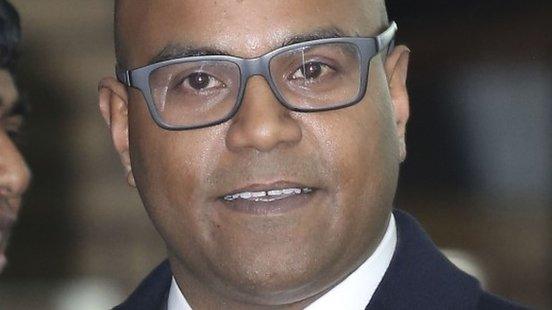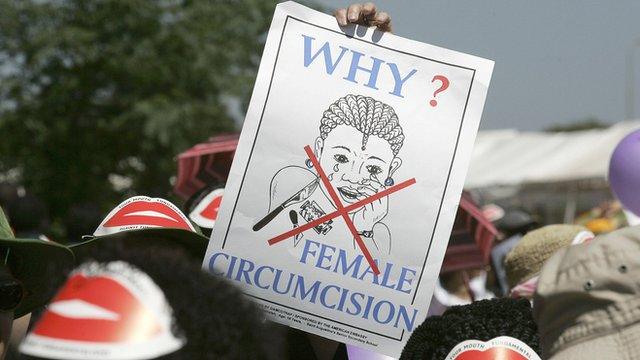Law to make reporting of FGM mandatory
- Published

Professionals who fail to report cases of female genital mutilation (FGM) in children could face the sack under a new law for England and Wales.
The government wants to make the reporting of FGM - also known as female circumcision - mandatory in all cases involving under-18s.
A law is expected to be brought in before May's general election.
All teachers and regulated health and social care professionals will have to report cases to police within a month.
If they fail to do this, they will face internal disciplinary measures or be referred to their professional organisation, which has the power to bar them from practice.
'Emotional suffering'
Crime Prevention Minister Lynne Featherstone said it would "help prevent this appalling crime from happening".
"We believe that introducing a mandatory duty will provide clarity for professionals and will give them the confidence to confront FGM," she said.
"It will aid police investigations and increase the number of perpetrators caught and prosecuted.
"It will also send a clear message to perpetrators that they will be held responsible for their actions."
The law will apply in all cases of known FGM in under 18s, whether it is disclosed by the victim or seen by the professional.
Ms Featherstone said: "FGM is a criminal offence and it is child abuse.
"It can cause extreme and lifelong physical and emotional suffering and we all have a responsibility to do all we can to put a stop to it."
Doctor cleared
Dr Peter Carter, chief executive and general secretary of the Royal College of Nursing, welcomed the move.
But he added: "It is important that with FGM, reporting procedures to the police are clear and easy to navigate, so that health professionals know what's expected of them and this issue is properly tackled."
It is estimated that 130,000 women living in Britain have been subjected to FGM, which can cause infection, problems in childbirth and death in some cases.
The practice has been illegal in Britain since 1985, but no-one has been successfully prosecuted for it.
NHS doctor Dhanuson Dharmasena, 32, stood trial accused of carrying out FGM last month, but was acquitted in fewer than 30 minutes amid claims the Crown Prosecution Service had brought the case because of political pressure to secure a conviction.
- Published4 February 2015

- Published18 August 2014

- Published22 July 2014

- Published22 July 2014
